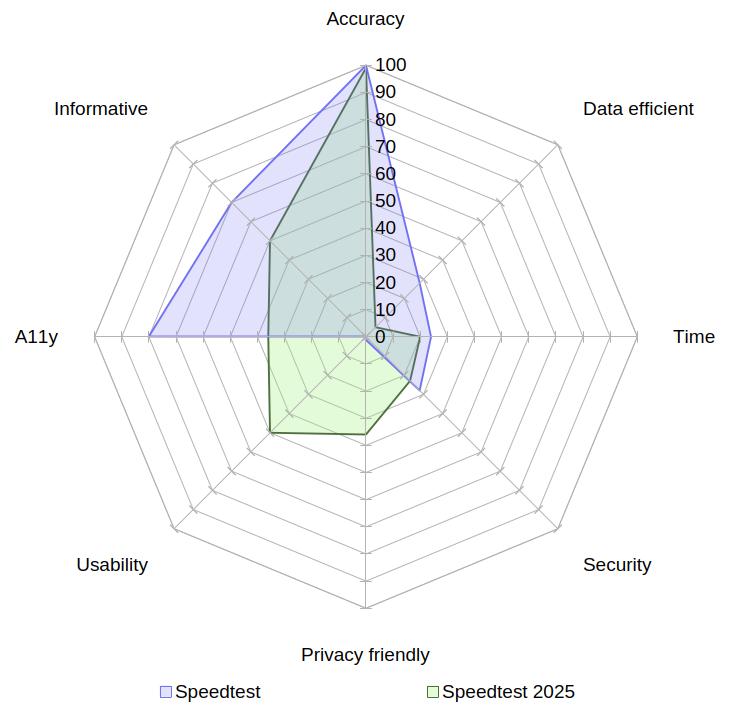https://www.speedtest.net/ The Speedtest® speed test 0 3/5 stars ★★★☆☆ Hans van der Graaf Hans van der Graaf Pop
In 2025 Speedtest® got some extra features and a new home page. Reasons enough to retest this famous speed test.
In general, the Speedtest® speed test is not a recommended speed test, mainly because this speed test uses a lot of data and is relative slow.
- Data efficiency: 5/100
- Time to complete: 20/100
- Security: 23/100
- Privacy friendly: 36/100
- Usability: 50/100
- Accessibility: 36/100
- Informative: 50/100
With an adverstised speed of 125 Mbps and an average measured internet speed of 126.4 Mbps, we conclude that the Speedtest® speed test is a very accurate speed test (Accuracy score: 100/100).
The Speedtest® speed test is a mainstream speed test. That is, this speed test measures the advertised speed.
The Speedtest® speed test is owned by Ookla. Ookla offers Speedtest® since 2006.
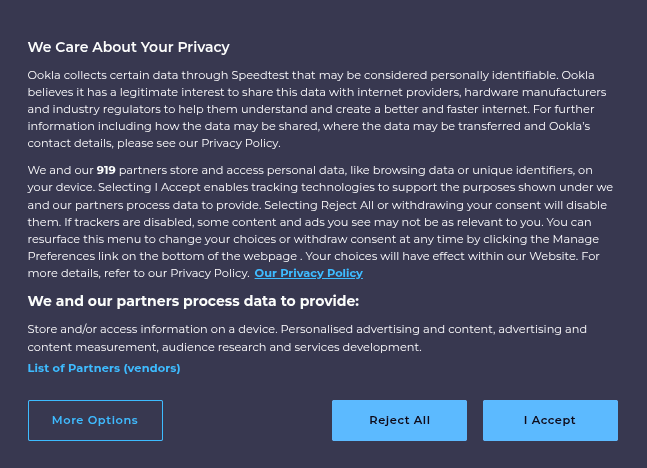 A striking message in the cookie banner is that over 900 partners store and access personal data.
The good news is that you have the option to Reject All.
A striking message in the cookie banner is that over 900 partners store and access personal data.
The good news is that you have the option to Reject All.
However if you choose reject all, there are still 8 cookies in use.
Some screenshots
When you run the speed test in a standard browser, there are ads at each page.
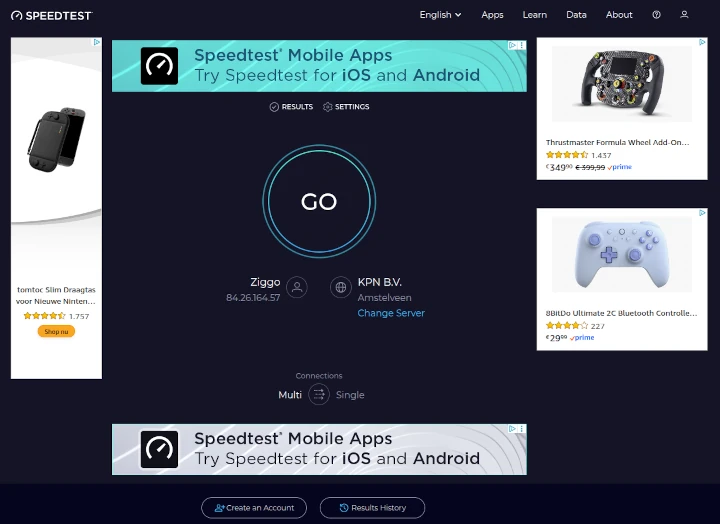 The start page with the famous "Go" button contains ads.
The start page with the famous "Go" button contains ads.
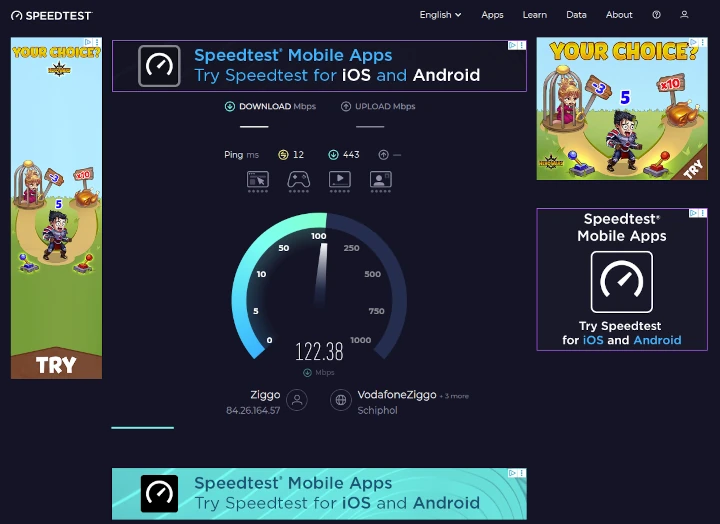 When the speed test runs there are ads.
When the speed test runs there are ads.
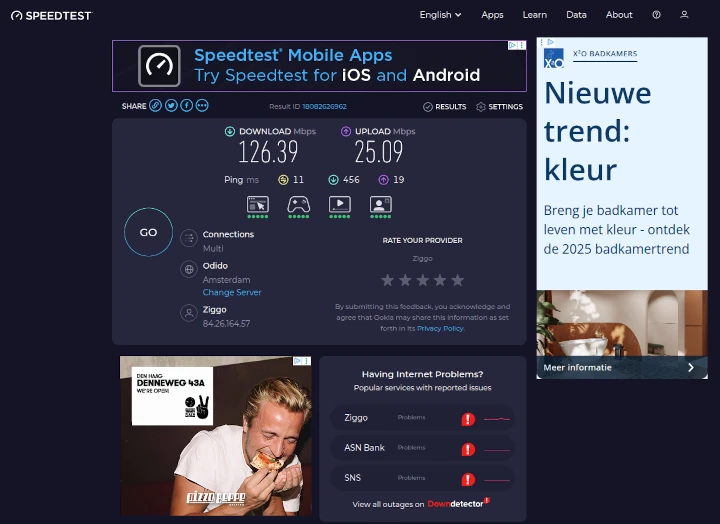 When the speed test shows a summery of the speed test results there are ads.
When the speed test shows a summery of the speed test results there are ads.
Pros
This Speedtest® speed test has the following pros:
- Accurate, it is the gold standard
- It is an original speed test
Cons
This Speedtest® speed test has the following cons:
- When cookies are accepted, over 900 partners of Ookla are involved
- There are ads
- There are a lot of cookies
- The speed test uses a lot of data
When to use Speedtest®
If you just want to know what your internet speed is, then use another speed test. Read our advice for a better speed test that suits your needs.
Keep in mind that your home network is usually the bottleneck.
How we tested
We have tested the Speedtest® speed test in a standardized way. This makes speed tests easy to compare.
The following results form the basis for this speed test review:
- Abort/pause possible: no
- Ad-free: no
- Average download speed of 3 measurements: 126.4 Mbps
- Clear indication of the current focus: yes
- Correct back button behavior: yes
- Flesch Reading Ease score of the privacy policy: 35.10
- Number of ACheckers known problems: 0
- Number of cookies: 23
- Number of measured features: 3
- Number of Wave errors: 4
- Observatory score: 0
- Tingtun score: Not available
- Total data use of 3 measurements: 1004.19 MiBs
- Total time to complete 3 tests: 128 seconds
Differences with earlier test results
We did found some differences with our earlier test of Ookla's Speedtest®.
The following is different:
- Clear indication of the current focus: yes instead of no
- Correct back button behavior: yes instead of no
- Flesch Reading Ease score of the privacy policy: 35.10 instead of 26.86
- Number of cookies: 23 instead of 21
- Number of measured features: 3 instead of 5
- Number of Wave errors: 4 instead of 2
- Tingtun score: Not available instead of 100
- Total data use of 3 measurements: 1004.19 MiBs instead of 797.33 MiBs
- Total time to complete 3 tests: 128 seconds instead of 122 seconds
The differences are shown in the radergraph below.
